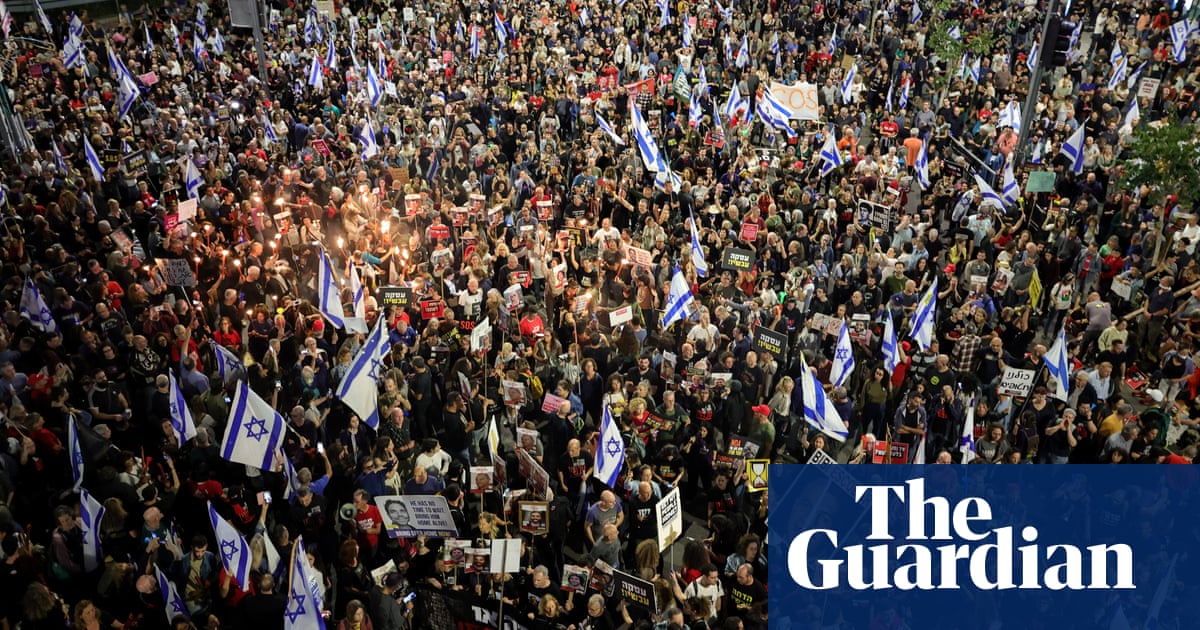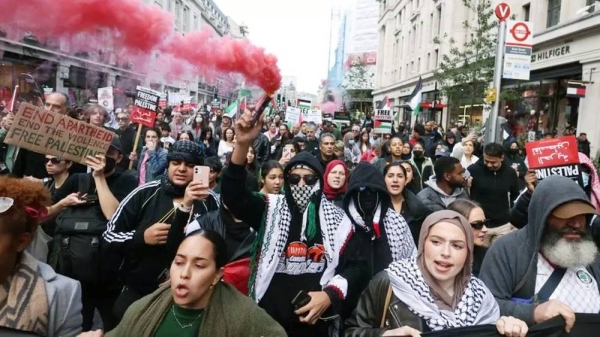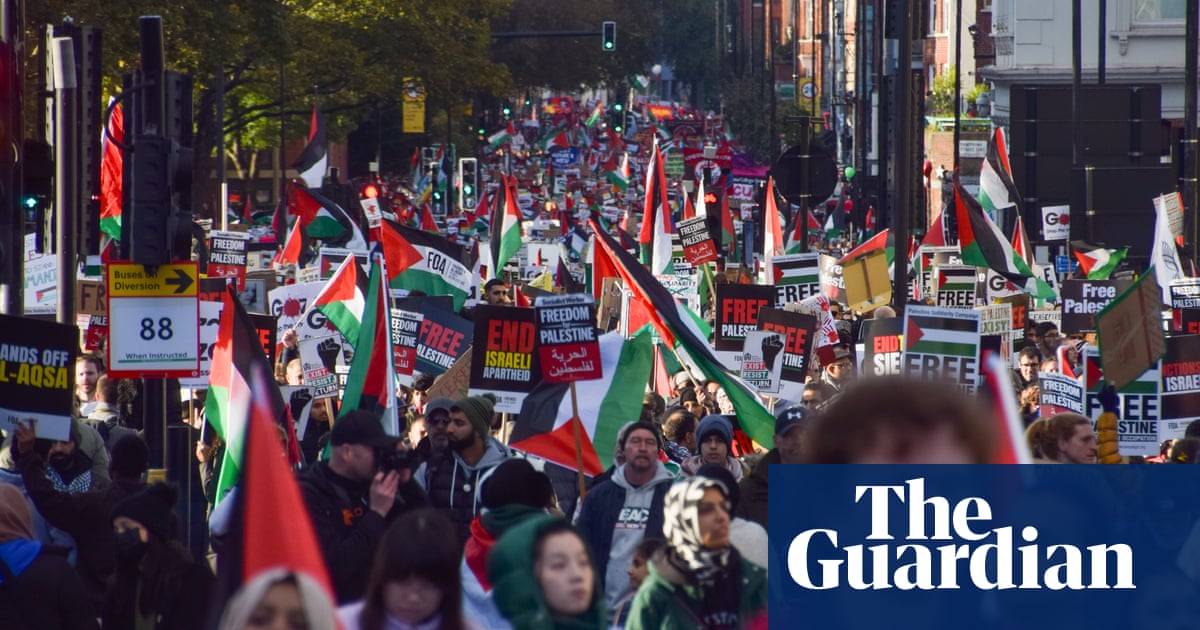
Thousands gathered in Trafalgar Square on Saturday for the March of the Mummies protest against a childcare structure that many say is setting parents, children and society up for failure.
Among them, swathed in gauze and pushing his two-year-old’s stroller, were Laurence Parkes and his family, who described raising two children in London as expensive: a monthly cost including nursery and after-school care that nears the family’s mortgage payments.
“The government should be doing more to support children and parents, and helping their kids get the best start in life,” said Parkes, 47. “It’s a long-term plan for productivity rather than Liz Truss’s silly plan.”
Before 11am, pregnant mothers, parents with prams and children with painted faces and fancy dress arrived armed with placards saying, “Knocked up then knocked off the career ladder” and “Childcare costs are wicked” in support of the campaign coinciding with Halloween weekend.
Organised by Pregnant Then Screwed, similar marches took place across 11 cities on Saturday, all calling for reforms to the childcare sector.
“I want to get away from thinking that these are our children, so we have to pay for them. They’re not just our children, they’re members of our community, they’re going to grow up to be the doctors, the politicians, the neighbours of everyone in this community,” said Rebecca Williams, who works less now that she is a mother of two.
The UK’s childcare costs are already among the highest in the world. Now, with a cost of living crisis and soaring inflation, many parents say they are struggling to pay for childcare in addition to rising bills.
Mother of two, Nyamoi El-Sebai says the cost of childcare will amount to £131,000 over a five-year period. In addition to spending most of her income on childcare, she feels she is falling further behind in her career as a conservation architect after two lots of maternity leave.
“Maybe I should just change careers,” she said. “There needs to be more funding for families.”
When looking at other nation’s childcare systems and parental leave, Danish-born Stephan Bruntse, 35, said the UK is light years behind Scandinavia, where the system benefits not only the parents and children, but the economy.
“Childcare is four times as expensive here as it is in Denmark,” said Bruntse, a father of a newborn. “I don’t think the British government has realised what childcare brings to the economy.”
Moving elsewhere is something the family thinks about increasingly as they consider childcare costs for a second child, which would mean an additional £1,800 each month.
His partner, Maria Kaae, 35, has only been on maternity leave for three months from her job in finance, and said she already feels forgotten. “When you go on maternity leave, even though you’re still an employee, you still have rights,” said Kaae, who would like to see more flexible working, subsidised childcare costs and equal rights for parental leave.
“I wish he could be around a lot more to experience everything that I’m experiencing.”
Mandu Reid, the leader of the British Women’s Equality Party, accused the government of leaving mothers to work on “pittance wages” while raising children. Speaking before the crowd, she said “underpaid, undervalued, largely women workers” were paying the cost for the “failures” of the political system.
“We can win this,” she said. “We won’t stop until our political system fixes the problems it’s created.”
Labour MP Stella Creasy said the prime minister had made comments likening maternity leave to a holiday.
The Walthamstow MP told the PA news agency: “A lot of us were really concerned to hear Rishi Sunak compare taking maternity leave to holiday, which kind of reflected that he didn’t really know what he was talking about.












